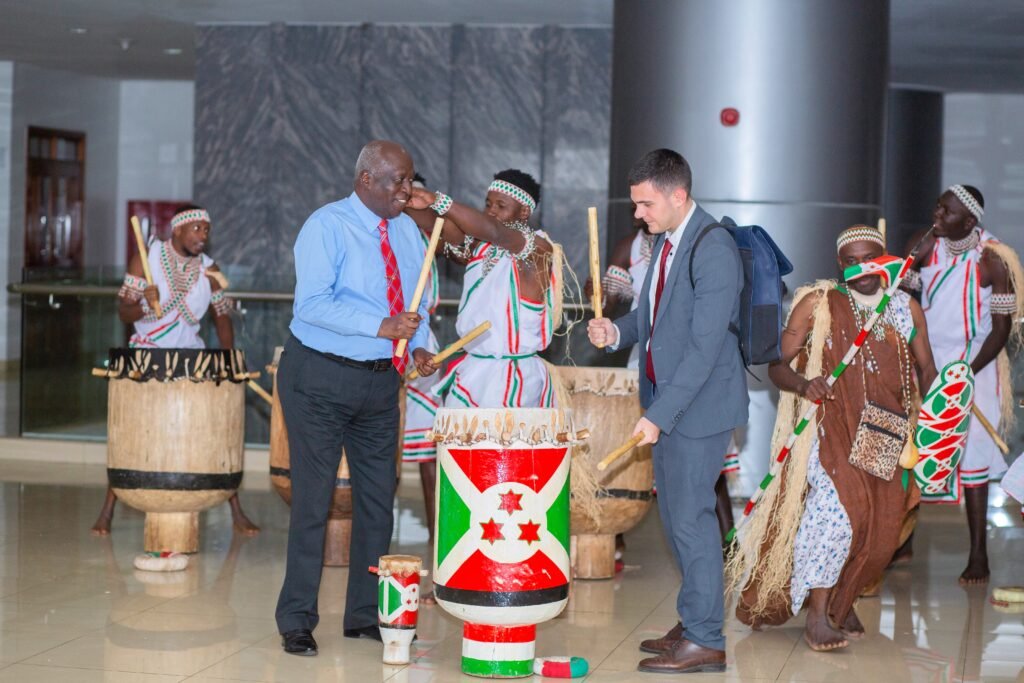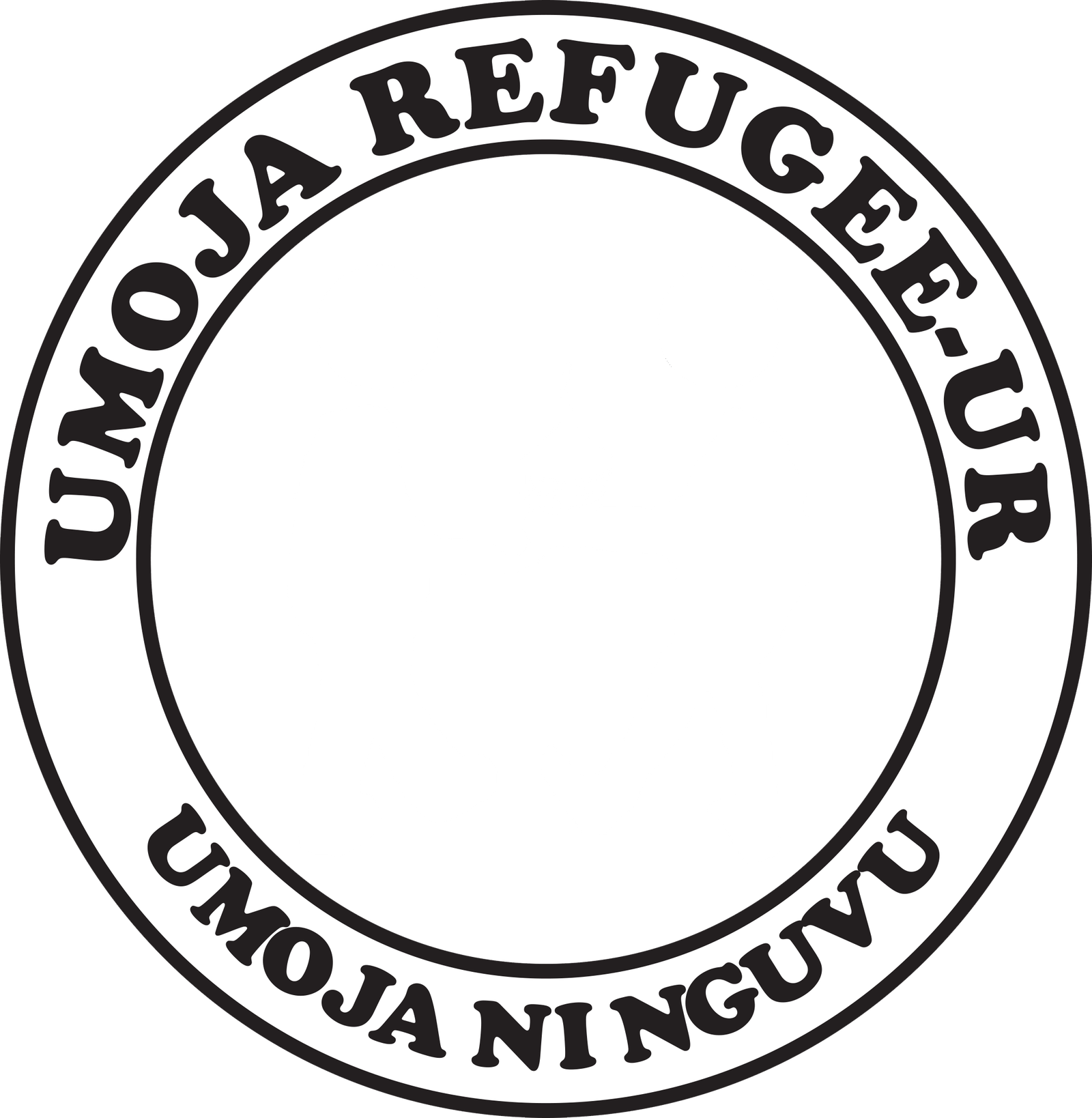Beyond My Status
Celebrating Resilience: Empowering Refugees and Immigrants in Kenya
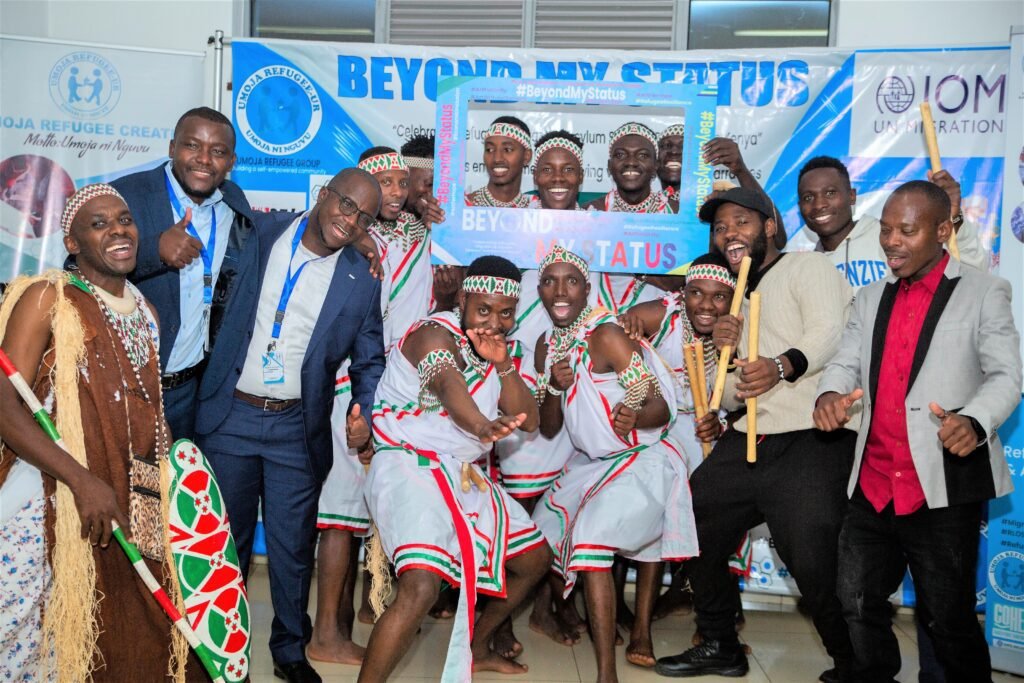

INTRODUCTION
About Our Organisation
Umoja Refugee Creative is a registered, refugee-led organization (RLO) that seeks to uplift the lives of
the less privileged refugee families and vulnerable local hosts in the urban setup, in Nairobi. We believe
that refugee issues cannot be sufficiently resolved without including refugees at the decision-making
table. This is possible through empowering RLOs to implement community projects as the direct
impacting stakeholders on the ground.
Umoja Refugee Creative focuses on empowering refugee women, children, the elderly, and differentlyabled persons, by implementing Self-Reliance based programs, promoting mental health care, and
advocating for equal access to opportunities to better the lives of the most marginalized, less privileged
persons.
Our Vision: “Building a self-empowered community”; through the power of harmony creative and
optimism.
Our Mission: “To uplift the needy for sustainable self-reliance.”
Our goal: “To instil in everyone’s mindset the need to maintain a good practice of self-reliance standards
for families’ sustainability via procreative activities and skills development.”
Overview
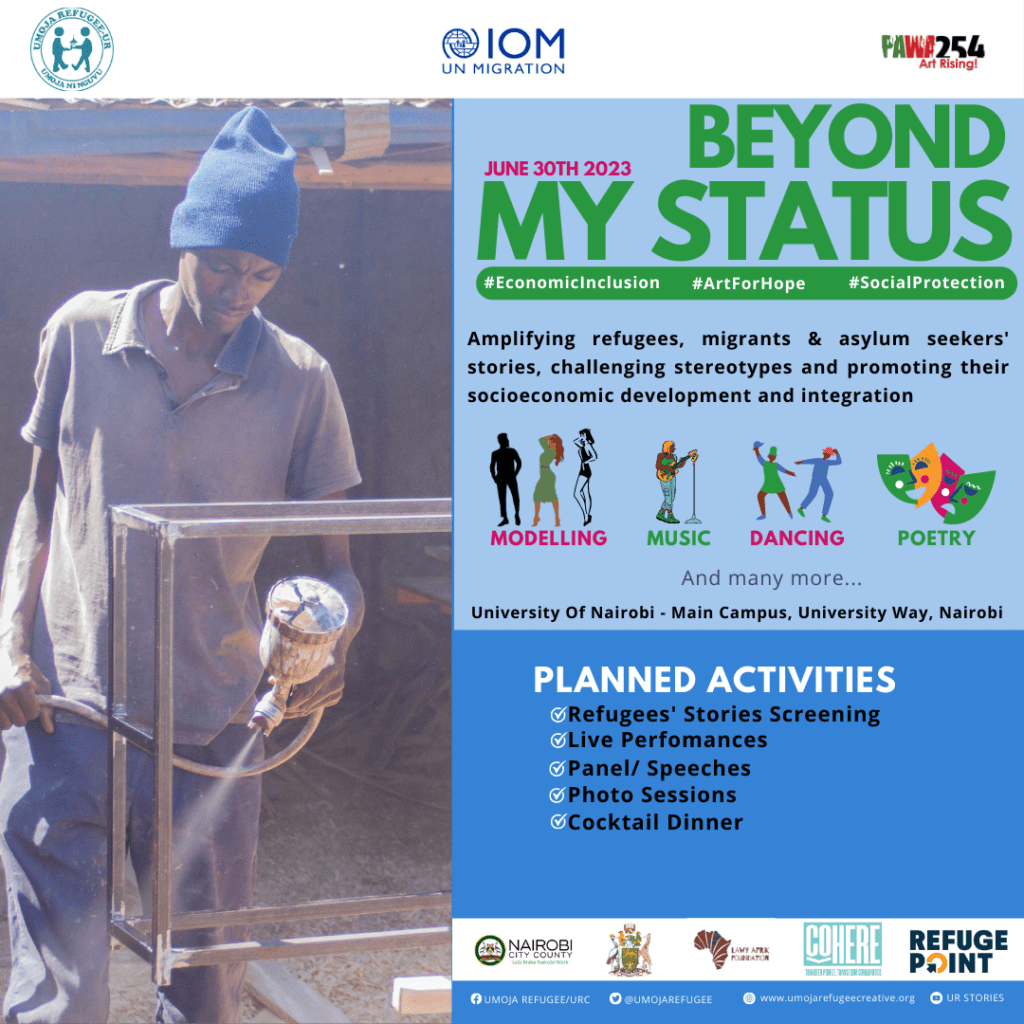

Umoja Refugee Creative and the International Organisation for Migration (IOM) in partnership with and
supported by Pawa254, the University of Nairobi (UoN), the Nairobi City County (NCC), the Lawy Afrik Foundation, Refuge Point and Cohere held an event at the University of Nairobi – Main campus, on 30th June 2023, to showcase the untold socio-economic struggles and resilience of migrants and refugees’ while facing barriers during transit/Stay, disease outbreaks, drought, and conflict.
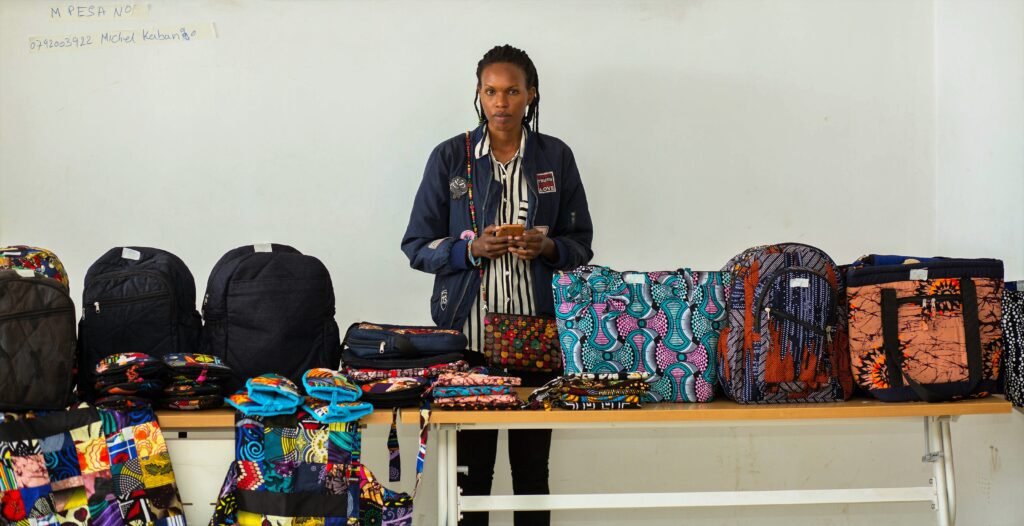

The Beyond My Status event was organized in line with the ongoing local integration plans of forceddisplaced persons – including asylum seekers, migrants, and refugees. The aim of the event was to:
i. Celebrate the resilience of refugees, migrants, and all forcibly displaced persons, despite the
stigma attached to their status, and;
ii. Advocate for economic inclusion and social protection of refugees as stipulated in the Shirika Plan
and the 2021 Refugee Act.
In attendance were guests of various nationalities, namely, Rwandese, Burundians, Kenyans, South
Sudanese, Congolese (DRC), Ethiopians, Somalians, Eritreans etc. All the attendants came colourfully
worn with one desire to raise a voice on the untold stories of marginalized communities. The event
attracted around 70 participants, composed of the various stakeholders.
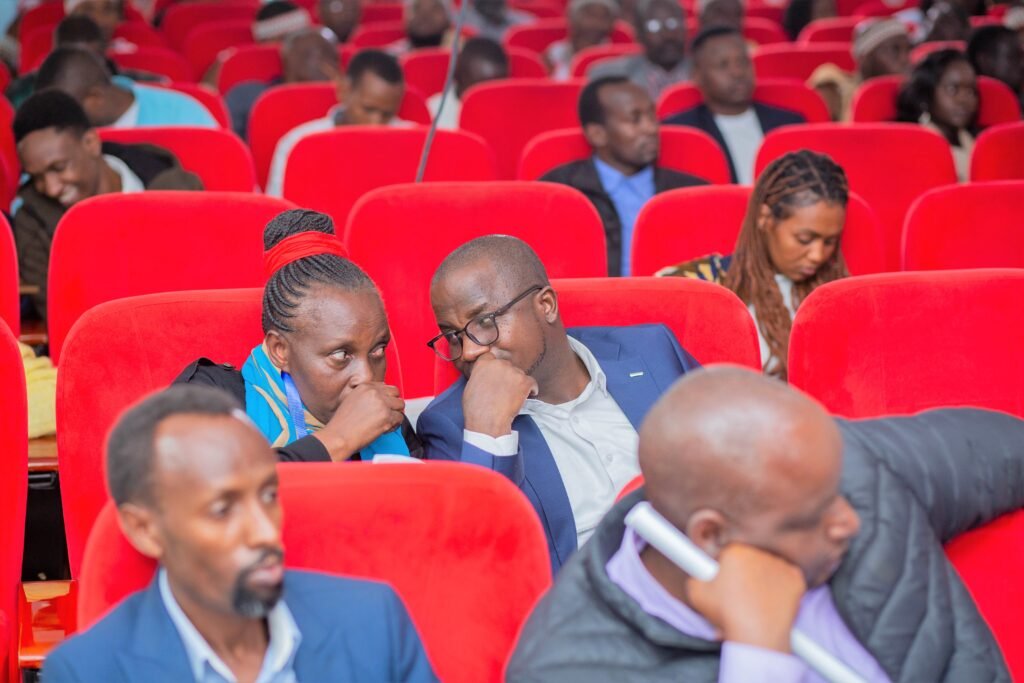

ENTERTAINMENT
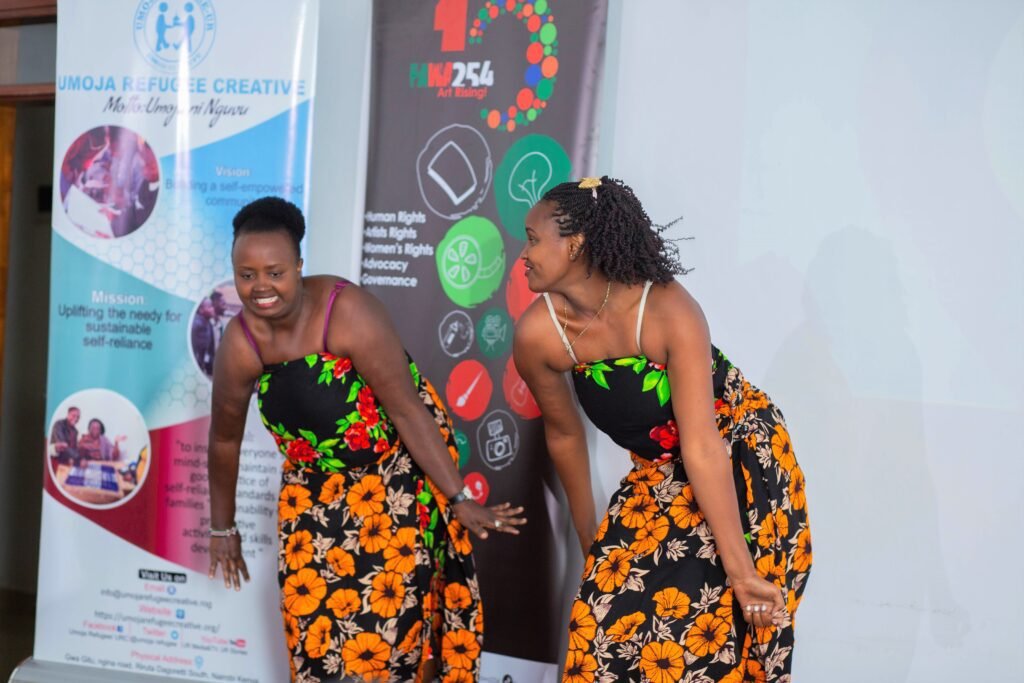

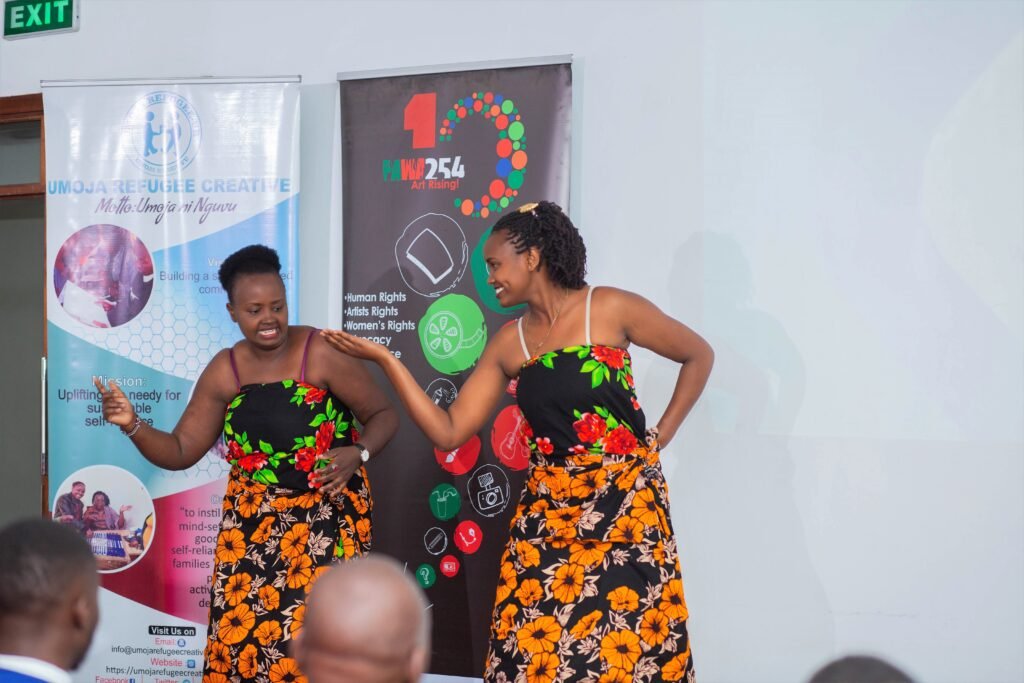

During the event, the audience was treated to outstanding and captivating musical, dance, and poetry
performances. They included:
- The Gahigo drummers; who performed a traditional dance and song using the powerful tam-tam
drums. - Burundian Traditional Women Dance
- Music performance by Samuel the guitarist
- Poetry performance by Nyagonchong’a
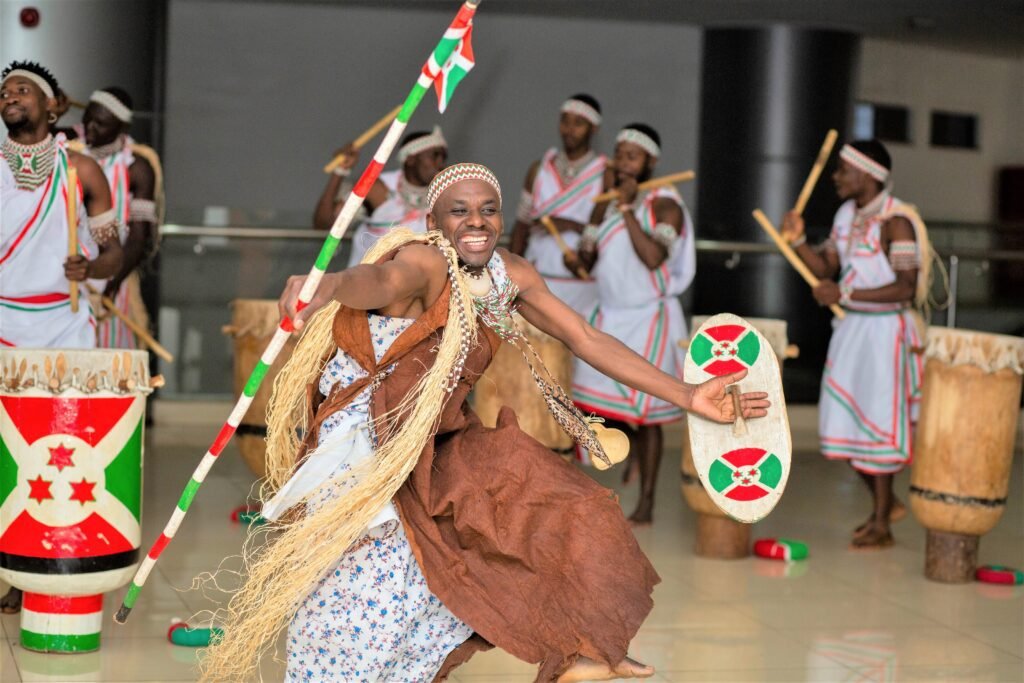



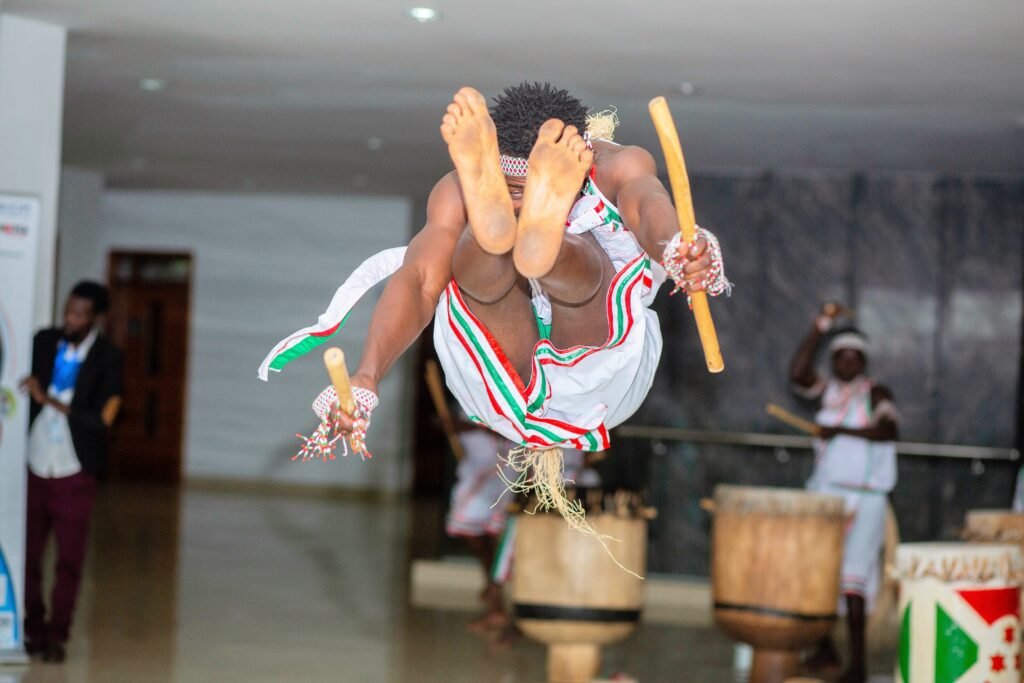

SHORT FILM
The event included the screening of a documentary titled, ‘Beyond My Status’ which highlighted the
stories of refugees living in urban areas and the struggles they go through with regard to economic
inclusion and social protection, and how they have managed to overcome these struggles.
The documentary was produced by UR Media&TV under UR-Stories a program of Umoja Refugee Creative
in partnership with Pawa254, and is centered around the experiences of refugees living in limbo due to
the documentation issue which explains their plight the most. This was shot as a sample production of
urban refugees especially those in Nairobi
PANEL DISCUSSION
The Panel Discussion entailed a highly interactive session that purposed to shed light on the issues and
challenges that refugees are facing with regards to economic inclusion and social protection, explore
the solutions and avenues of opportunity for refugees, migrants, and asylum seekers, and highlight the
resilience of these marginalised communities
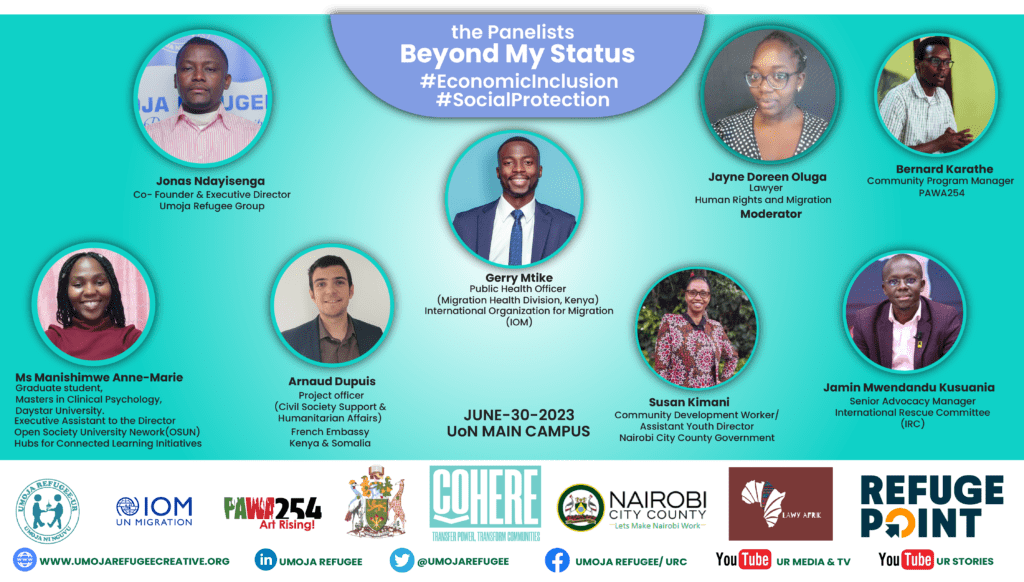

The Panel was made up of a well-chosen and balanced forum of leaders with different backgrounds and
expertise. The panel discussion was moderated by Jayne Doreen Oluga (Lawyer and Consultant: Human
Rights and Forced Migration) and comprised of the following panellists:
- Anne-Marie Manishimwe (Masters’ Graduate student and Executive Assistant, OSUN)
- Arnaud Dupuis (Project Officer, French Embassy: Kenya & Somalia)
- Bernard Karathe (Community Manager, PAWA254)
- Gerry Mtike (Public Health Officer, IOM)
- Jamin Kusuania (Senior Advocacy Manager, IRC)
- Jonas Ndayisenga (Co-Founder and Executive Director, Umoja Refugee Creative)
- Susan Kimani (Assistant youth Director, Nairobi City County Government)
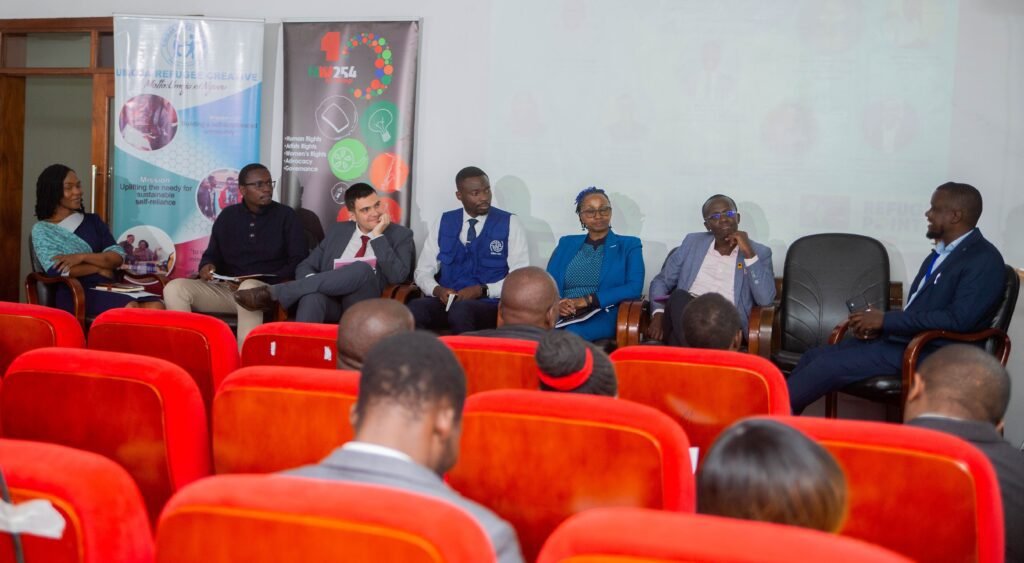

It was recommended that refugees should be given value by providing them with valid documentation,
free mobility, and socio-economic inclusion; with this inclusion and integration will be possible.
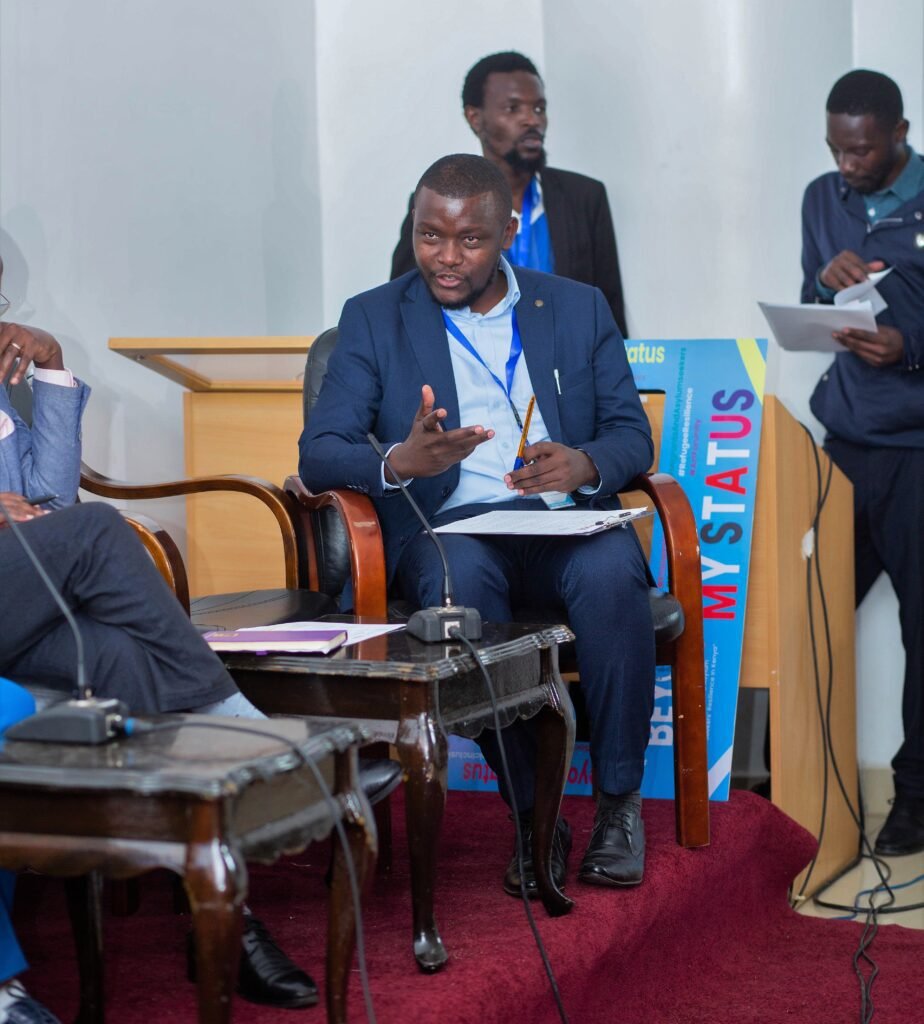

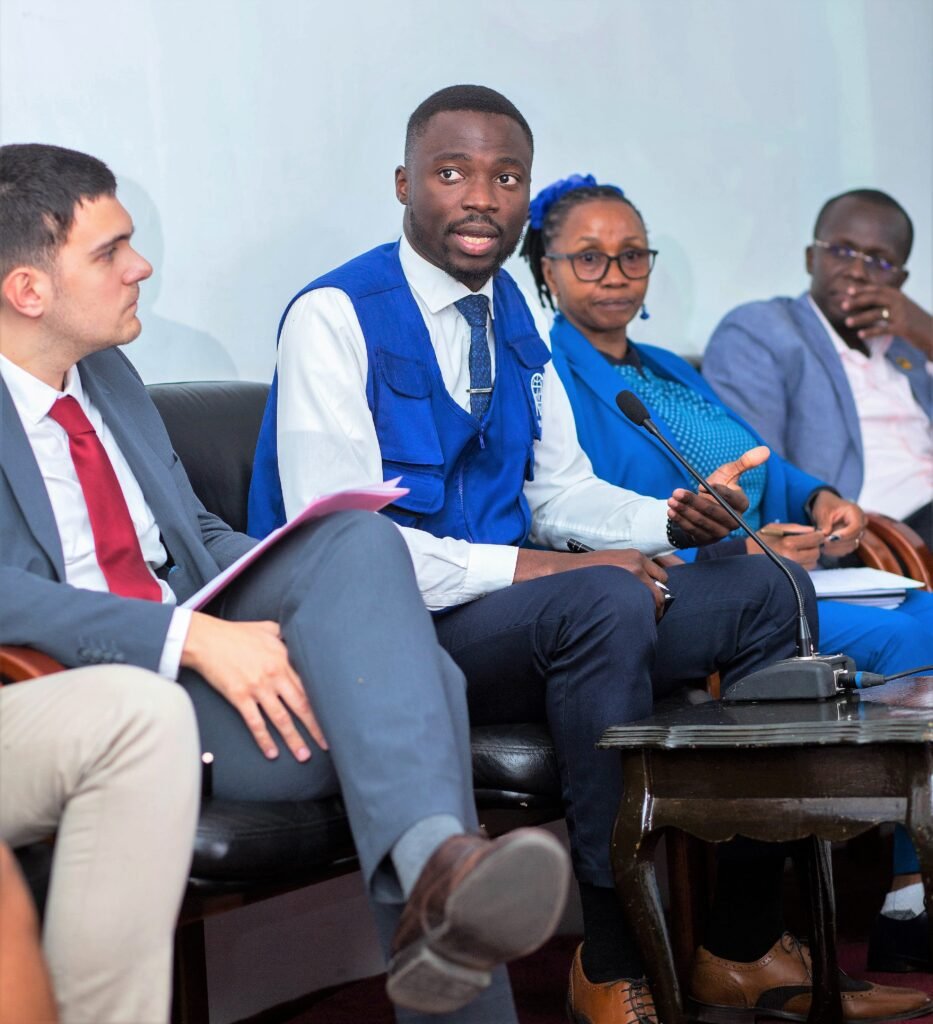

Under the recently launched, Shirika Plan, FDPs and the host communities would be given equal
opportunities so as to foster the integration of refugees. It was further suggested that all the
recommendations and inputs collected: from refugee leaders and Refugee-Led Organisations (RLOs),
during the 2021 Regulation deliberations, in other forums working towards refugees’ meaningful
participation and socioeconomic inclusion; should be put into action by the relevant bodies at the
policy-making level.
SPEECHES
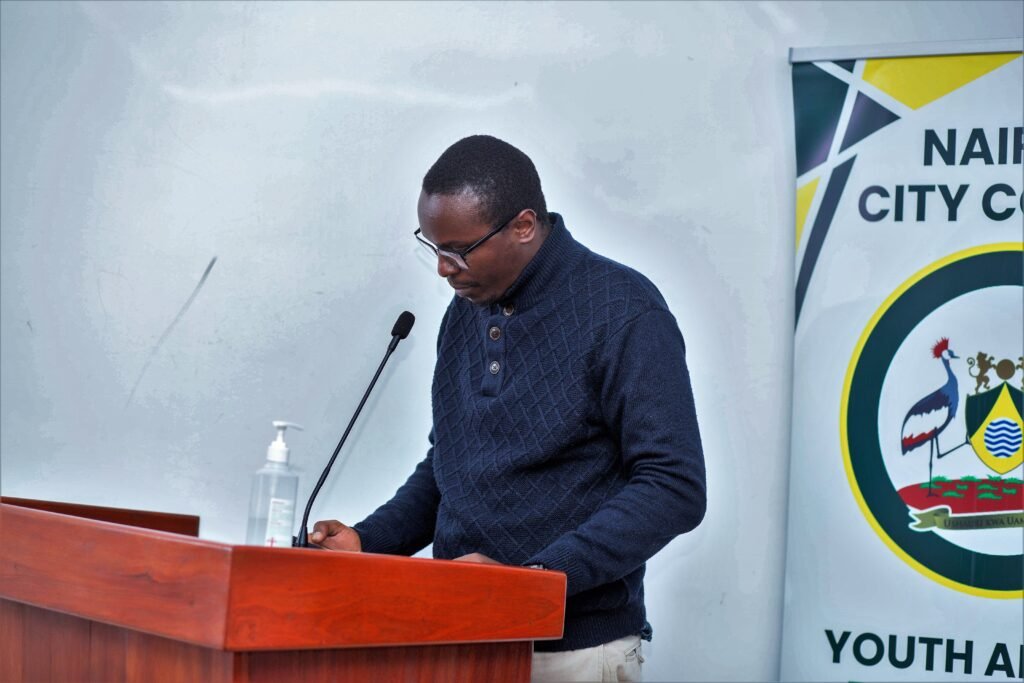

The Beyond My Status event served as a platform for various dignitaries and persons working within
the humanitarian sphere, i.e. INGOs, NGOs, RLOs, as well as international and/or national government
agencies, to express their views and contribution towards the cause.
They all expressed their support for the initiative and the advocacy towards economic inclusion and
social protection of the FDPs.
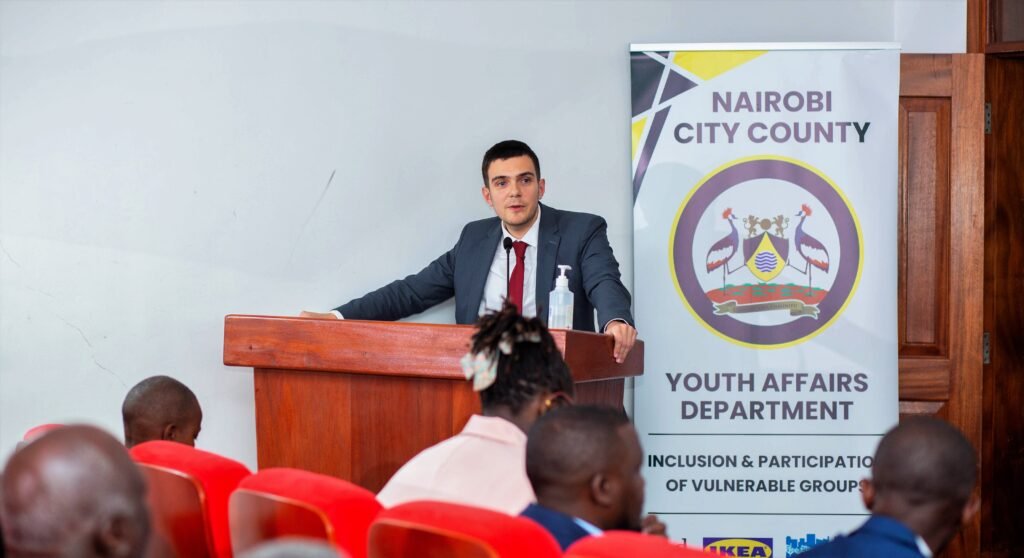

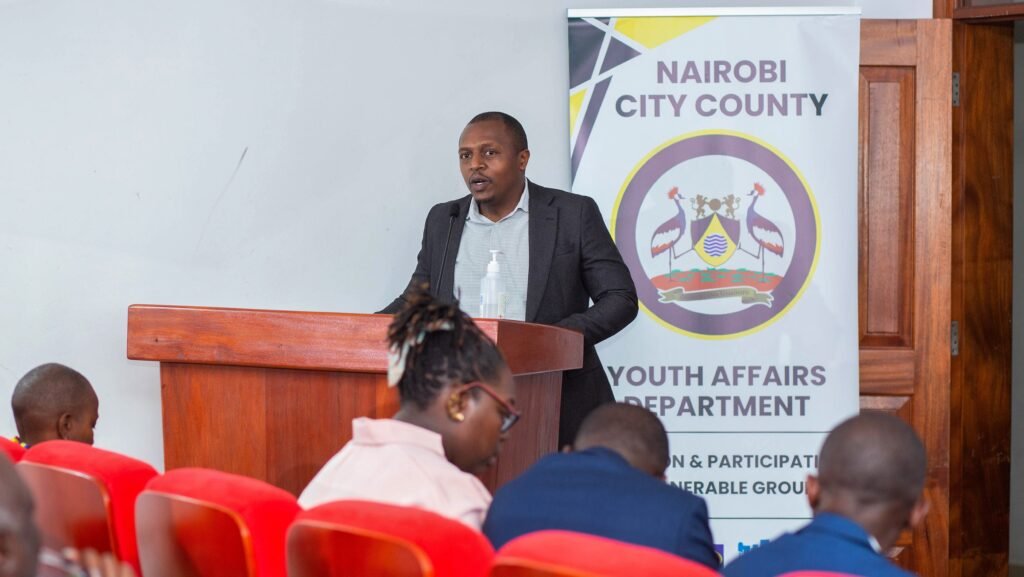

OUTCOMES AND CONCLUSION
Through this event, the audience and guests were able to have a deeper understanding of the
challenges and issues faced by FDPs. It also provided an opportunity to look into the possible durable
solutions that the relevant stakeholders may adopt in their respective capacities and commitments to
spread awareness and promote the social integration and economic inclusion of refugees.
Furthermore, potential partnerships and collaborative opportunities were identified among the
stakeholders present to support the cause and ensure that the recommendations given are
implemented.
Our end goal was to showcase and celebrate the resilience of marginalized communities (refugees,
asylum seekers, and migrants) to promote socioeconomic inclusion and social cohesion. As an abstract
of our major economic inclusion project under Miss & Mr. Refugee, we look forward to implementing
this particular project as a contributive platform, in line with achieving full self-reliance as it is
incorporated in the Shirika Plan. Miss & Mr. Refugee will play a catalytic role in between opportunities,
access to services, and labor market for both communities, refugees and host.
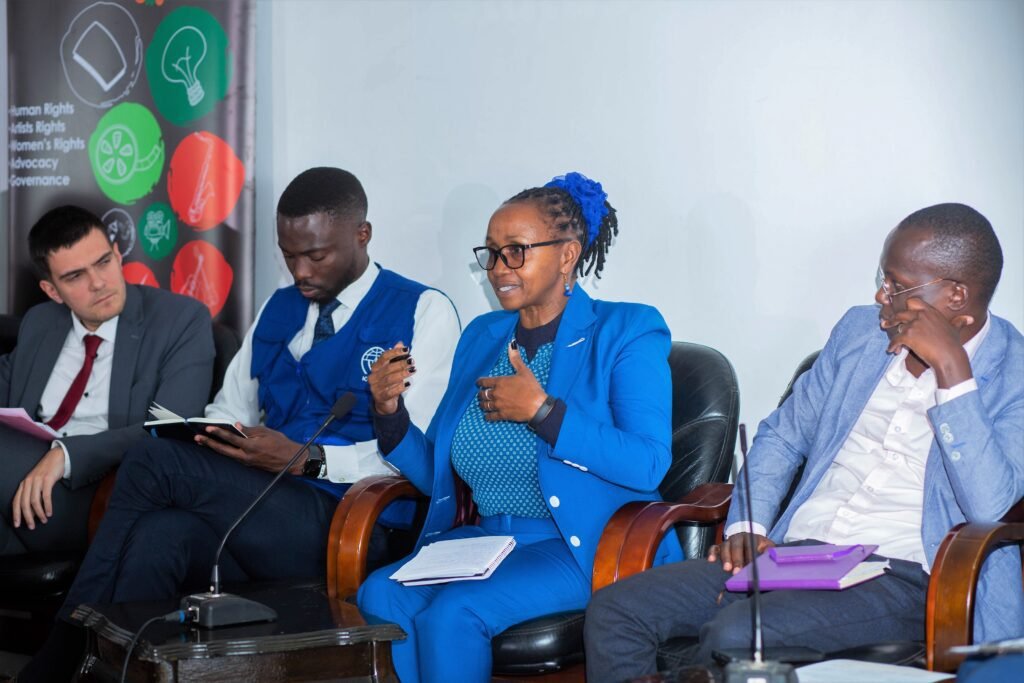

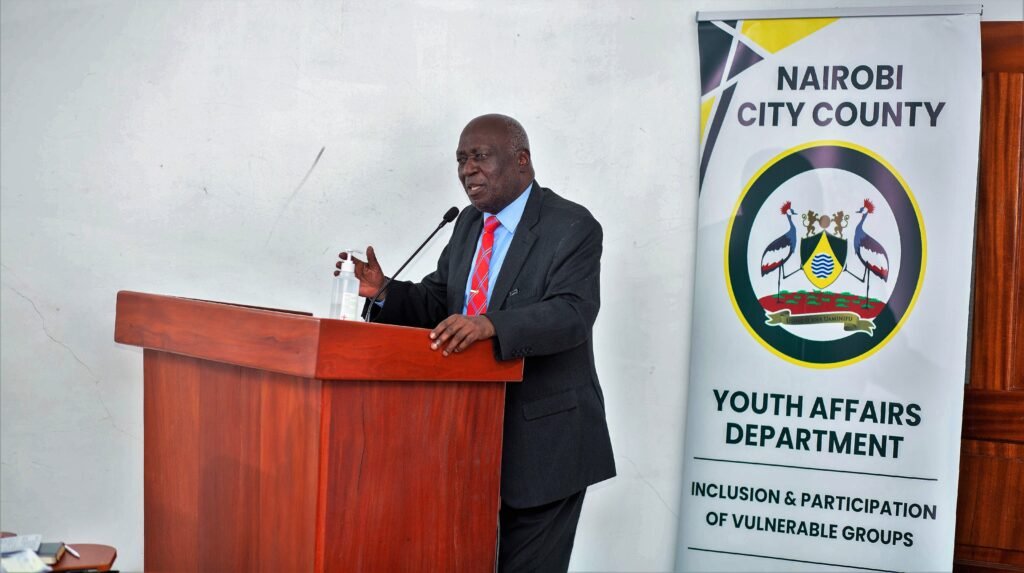

Besides being an opportunity for networking and connecting the various stakeholders as they
enjoyed a well-prepared cocktail at the end of the event, it was an occasion to see the few
products exhibited outside of the hall. Where some of the products made by refugees in
tailoring and handcrafting were at the venue to showcase and exhibit as a way of creating a
market linkage for those products’ makers and the audience.
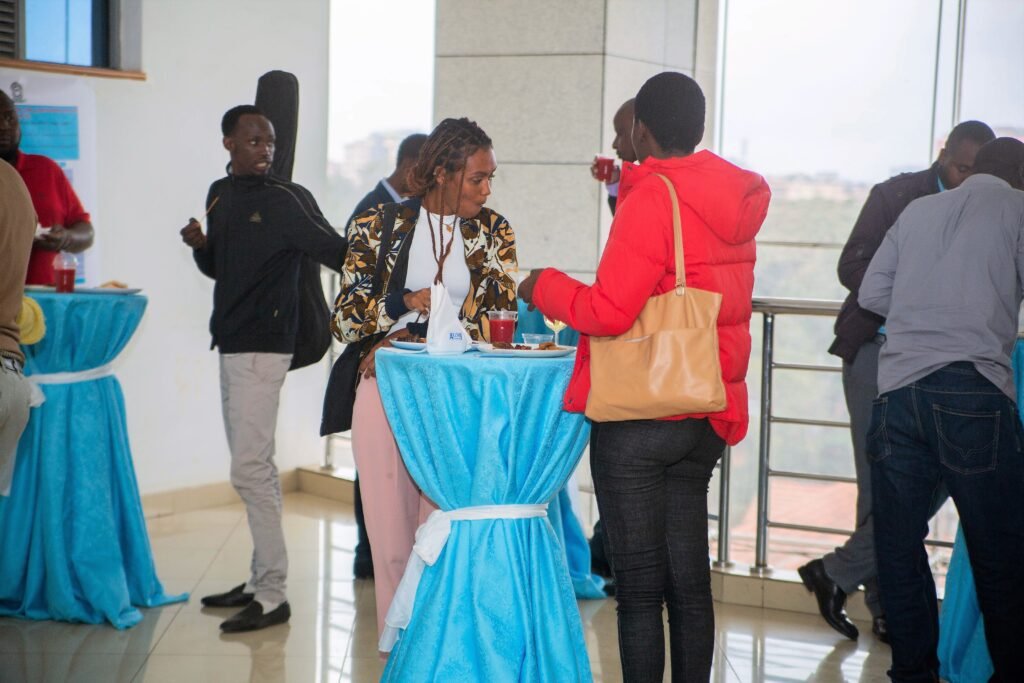

PARTNERSHIP APPRECIATION
The Umoja Refugee Creative is deeply grateful for the financial support and sponsorship by the
International Organization of Migration (IOM), which was very instrumental in making the event
possible, but also actively supports the resilience of the marginalized communities.
In the same manner, much appreciation and commendation are given to PAWA254, the University of
Nairobi who supported the activity in kind.
The Umoja Refugee Creative also recognizes and acknowledges the collaborative support of RefugePoint,
Cohere, the LawyAfrik Foundation, the International Rescue Committee, HIAS, the Nairobi City County,
and the French Embassy.
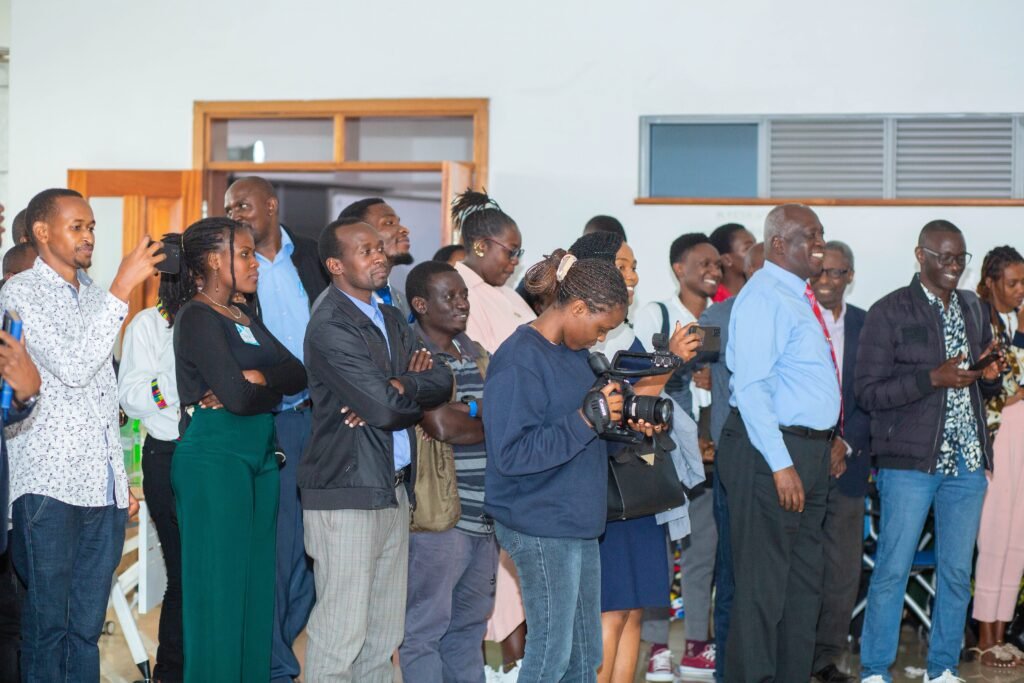

RECOMMENDATIONS:
In the humblest manner, participants and stakeholders suggested some of the recommendations for
successful, inclusive, and effective local integration. Among many others here follow these
recommendations:
- UNHCR and the Government should work together hand in hand with refugees’ initiatives /
RLOs and CSOs to allow inclusive and meaningful participation of both communities - Sensitization activities should take place at the grass root to embrace a bottom-up approach
during implementation, it should operate at all levels, from the Wana nchi to service providers
at all stages and in all corners of the country. - The Shirika Plan should give priority to peace-building and social cohesion activities with a
community-based approach for better undergo the process of integration, this should start
right after sensitization - Localization should be more explored in terms of funds decentralization towards grassroots
initiatives, RLOs, and CSOs, providing more capacity building and funds opportunities to allow
the flow of money on the ground and achieve full self-reliance of the whole community. - As settlements are built, they should not be supposed to ground refugees in those designated
areas, it should rather give freedom of mobility to allow businesses to flow from settlement to
urban setups without any restrictions. - Documentation should no longer be an issue, give a refugee ID card and other papers used by
refugees and asylum seekers, value to access all the services like Banking, M-pesa services,
NHIF, Licences, and KRA, and introduce special work permits designed for refugees - Create a conducive environment in education by creating accommodative schools for both
refugees and citizens. Educating teachers and head teachers about refugees matters and
adding more scholarships for those who want to do higher education within the existing
system.






